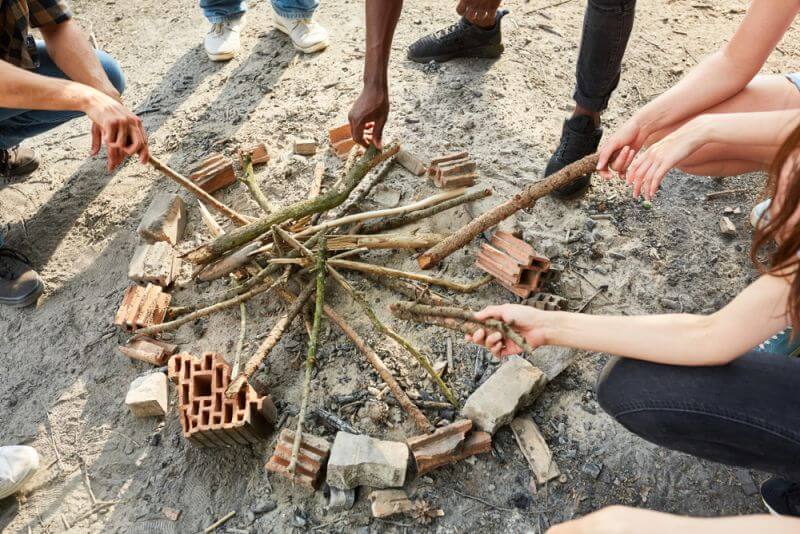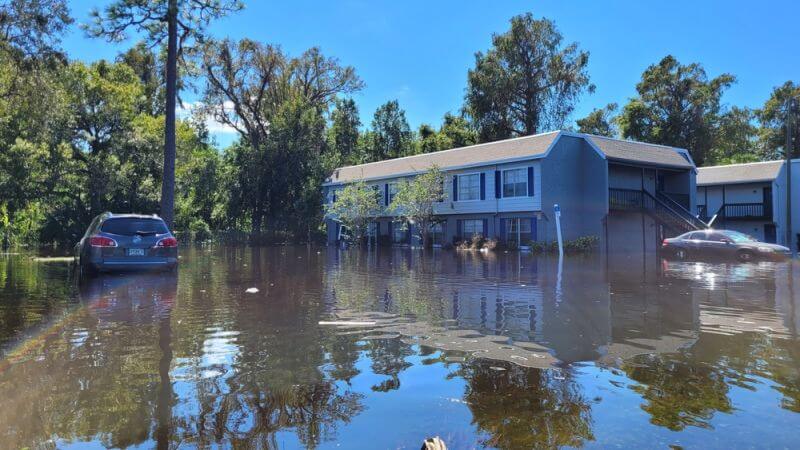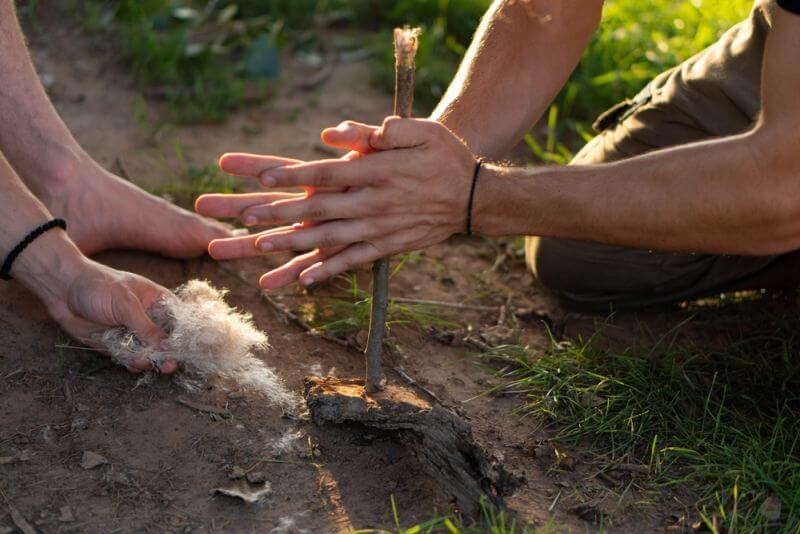In the literature dedicated to survivalism and emergency preparedness, you often find the same skills being discussed and analyzed repeatedly. This makes sense when you consider that many of these skills form the core pillars of survival, which are essential for any newcomer to learn.
However, survival is more than just building a shelter, starting a campfire, or finding and purifying water. It also has a personal side that is unique to each individual, and perhaps that’s why many survival experts don’t talk about the skills I will cover in this article. While anyone can learn how to make a fire or build a shelter, some skills take much longer to master and often have a learning curve that requires the right mindset to overcome.
So, let’s explore three survival skills that are rarely discussed and often overlooked—sometimes unknowingly.
Persuasion
Persuasion is a critical yet often overlooked skill in survival and prepping, especially in crisis situations where communication and cooperation are often vital. While most survivalists focus on the physical aspects of preparedness the ability to influence and persuade others can be just as important. Persuasion involves guiding others to see your perspective, make decisions that benefit the group or act in a way that aligns with your survival plan.
In high-stress situations or resource-scarce environments, where cooperation and leadership are essential, being able to persuade others effectively can mean the difference between success and failure.
What Persuasion implies
Persuasion is more than simply convincing someone to agree with you regardless if they are part of your personal group (family, friends) or outsiders. It involves understanding their mindset, addressing their concerns, and leading them toward mutually beneficial outcomes. It requires emotional intelligence, empathy, and the ability to communicate clearly.
In survival scenarios, where tensions may be high and people are acting out of fear or desperation, knowing how to persuade others can help de-escalate conflicts, encourage collaboration, and ensure everyone is working together for the common good.
How this skill can be used
You can use it to build group cohesion in survival situations for protection and support. Within these groups, there will inevitably be disagreements or differences in opinion. A person skilled in persuasion can help unite the group and encourage cooperation by finding common ground and showing the value of teamwork.
It can also be used to de-escalate conflicts during a crisis, where tensions can escalate quickly, leading to arguments or even violence. Being able to calm others down, talk through conflicts, and guide people toward peaceful solutions is invaluable. You will be able to defuse potentially dangerous situations by listening to all sides, addressing emotional triggers, and helping people find solutions without resorting to aggression.
Persuasion will help you secure resources and information in scenarios where things like food, water, or medical supplies are scarce. Whether you’re bartering, forming alliances, or sharing information, the ability to persuade someone to trust you, share resources, or provide vital information can improve your chances of survival. Establishing yourself as trustworthy and reasonable is key to building positive relationships in a crisis.
In life-threatening situations, persuasion will help you encourage critical actions when people freeze, panic, or hesitate to act. It will help you guide others to take the necessary steps to ensure their safety or the group’s well-being. Whether it’s convincing someone to evacuate, perform first aid, or share their supplies, being able to encourage the right actions at the right time is essential.
However, persuasion isn’t just about talking, it’s also about leading by example. People are more likely to follow someone who demonstrates competence, calmness, and decisiveness. If you’ve modeled good survival behavior and you are able to maintain a positive attitude in the face of adversity, you can influence others to do the same. This form of non-verbal persuasion can have a huge impact, especially when words alone aren’t enough.
Negotiation
Negotiation is another critical skill often underestimated by preppers and survivalists, even though it can play a pivotal role in ensuring survival during a crisis. Negotiation, in a survival context, involves more than just bargaining for goods or services. It’s about striking deals that benefit you and others while minimizing conflict and maximizing cooperation.
What Negotiation implies
This is the process of reaching an agreement between two or more parties with differing needs or goals. It requires clear communication, active listening, and the ability to understand the other party’s motivations. Contrary to what some believe, in survival situations, negotiation isn’t always about winning and it’s about finding a middle ground that ensures the well-being of everyone involved. A successful negotiator knows when to push for more and when to compromise to keep relationships intact or avoid conflict.
How this skill can be used
In a long-term crisis, traditional forms of currency will lose their value, and bartering can become the primary method of acquiring goods. Being skilled in negotiation allows you to trade what you have for what you need, ensuring that you don’t overpay or undervalue your own assets.
Negotiation helps you establish beneficial partnerships by clearly outlining mutual goals, expectations, and the terms of cooperation. These alliances can offer resources, additional manpower, or protection, but they require trust and clearly communicated agreements, which are achieved through effective negotiation.
In high-stakes survival situations, conflicts over limited resources are inevitable. Negotiation helps resolve these disputes without escalating into violence or hostility. By understanding the other party’s needs and offering compromises or alternative solutions, you can de-escalate tense situations and prevent further conflict, keeping the focus on mutual survival rather than division.
In some crisis scenarios, chances are you will encounter other survival groups with whom you’ll need to negotiate. These groups might control access to certain resources, territory, or information. Negotiating with external groups requires careful balance; you need to secure what you need without appearing weak or too demanding. Effective negotiation in these situations can prevent confrontation, allow for cooperation, or even open up trade routes between groups.
Also, if you’re part of a survival group, internal disputes over leadership, decision-making, or resource distribution can arise. Negotiation helps maintain peace within the group by ensuring that all members feel heard and respected. As a negotiator, you can mediate between conflicting interests, propose fair compromises, and guide the group toward consensus.
In extreme cases, you may find yourself in a hostile negotiation, such as when dealing with aggressive groups or individuals. Knowing how to negotiate in these high-risk situations can help you avoid violence or being taken advantage of. This type of negotiation involves maintaining a calm demeanor, clearly communicating your boundaries, and knowing when to walk away if the situation becomes too dangerous. In such cases, negotiation may be the only tool available for conflict avoidance rather than just an exchange.
Inventiveness
Inventiveness, or creativity helps you adapt resources to solve problems and it’s an essential survival skill that is often underappreciated. In survival and prepping circles, this skill is never mentioned. However, no matter how well-prepared someone may be, unpredictable situations can arise that require quick, out-of-the-box thinking. This is where inventiveness comes into play.
Inventiveness involves using what’s available in novel or unexpected ways to overcome obstacles or make life easier in a crisis. It can mean improvising tools, devising alternative ways to use common items, or finding creative solutions to problems when resources are limited. While for the average Joe, this means surviving, for preppers and survivalists, inventiveness can greatly increase the chances of thriving in difficult circumstances when conventional methods fall short.
What Inventiveness implies
It is all about flexibility, creativity, and resourcefulness. It implies thinking on your feet, assessing your surroundings, and making the best use of what’s at hand. In a survival situation, you often won’t have access to all the tools or supplies you need. Being inventive allows you to repurpose items, craft new tools, or adapt to changing circumstances.
This skill requires not only creativity but also a deep understanding of materials, physics, and problem-solving. The ability to stay calm and think clearly under pressure is essential for tapping into inventiveness, especially when the stakes are high.
How this skill can be used
One of the most practical uses of inventiveness is creating tools or equipment from available materials. For example, you might need a shovel but don’t have one. With some ingenuity, you could fashion one out of wood, scrap metal, or even plastic.
During a crisis, you may not have access to your full stockpile of supplies, or you may run out sooner than expected. Inventiveness allows you to stretch what you have, find alternative uses for items, or substitute unavailable materials with what’s on hand. For instance, if you run out of medical supplies, certain plants can be used as makeshift remedies.
Sometimes, the environment won’t provide ideal conditions for building a shelter, and you may need to invent new ways to protect yourself. If traditional materials like wood or tarps aren’t available, you might use debris, large leaves, or even clothing to construct a makeshift shelter.
Every survival scenario will come with unexpected challenges that require creative solutions. Whether it’s a broken piece of equipment, a flooded shelter, or a blocked escape route, inventiveness allows you to find ways around the problem. For example, if your food is running low, you might need to invent traps or fishing gear from available materials to catch wild game or fish.
Survival situations can thrust you into unfamiliar environments and inventiveness is crucial for adapting to these settings. In the wilderness, natural resources like tree bark, vines, and rocks can be adapted into tools, shelter, or fire-starting materials. Being able to think creatively about your environment increases your adaptability and resilience.
Besides its physical application, inventiveness can also be used to improve morale. In long-term survival situations, the psychological toll can be immense. Creating small comforts using available resources—like making a hammock from old fabric, creating games for entertainment, or crafting items that bring a sense of normalcy can make a significant difference in mental well-being. This ability to create comfort in hardship is an often-overlooked aspect of inventiveness that can keep spirits up and reduce stress in difficult times.
Concluding
These survival skills allow you to adapt, overcome, and thrive when conventional methods and tools aren’t available. In any survival scenario, things rarely go exactly as planned, and the ability to come up with solutions is invaluable. For preppers and survivalists, developing and improving these skills means looking at every situation from multiple angles, and finding the right solution without putting themselves in danger.










Karenna | December 8, 2024
|
This is all so logical. Have you noticed in 2024 that many people do not have the gift of logic? That’s going to be the problem in negotiations during the coming crisis.
Solatle | January 30, 2025
|
Yeah, they are called political goons.
Ronald H Levine | February 1, 2025
|
I have noticed! … and given it much thought and made observations. Most telling is political activists making reversals to what was the opposing side. Skipping a lot and presenting my conclusion: We are witnessing the mind altering influences of the supernatural powers in the war between good and evil. Some might have guessed that, but I am in position to see it. Generally most people confine themselves in their own world as a bubble of their immediate involvements and are not a threat to the powers of evil. Even among most of my friends who are politically active, they are not a threat since they are largely ineffective. But, among those who are effective, many are stopped by influences of supernatural powers of evil. Oddly, it is those who use such power against us are the ones that recognize the miracles that prevail in my life and fear the supernatural powers of our Creator. I live by: “I don’t let a little thing like impossible stop me from doing what’s right!” I could tell so many stories of multiple miracles from our Creator overcoming impossible in my life. But, no need to hear my experiences from me because George Washington also went up against impossible many times and the miracles from our Creator are well documented in our Founding history.
An oldy but goody | January 8, 2025
|
Bill, thank you so much for all your well-given advice. It’s times like these that I wish I were a man or at least a younger woman. However, I am 76 and concerned that if or when the situation arises, I will either take control or just be a sitting duck. I live alone but have family within about 20 minutes to half an hour. My team would consist of 4 teenagers who think they are invincible, a grown man who knows how to order people around but fails to know how to give a meaningful order. and a woman who thinks having her hair done takes priority. I may be aging but I am not stupid, I have read about survival tech and life-saving abilities for years. I am a retired nurse and pride myself on holding it together in a crisis.
Most of what I’ve read is wonderful at letting you know how to lead a team & what to do in this situation and what to do in that situation but what kind of advice could you give me when I am on my own fending for myself. ? I realize I am very limited and can not compete for dominance but I surely there must be a few ideas to help me survive alone. Like what kind of weapon would you suggest, Should I stay in my home or venture out trying to find others nearby. ? I live in a rural area neighbors are farther apart but there is a lot of wooded area. How do I find out where the nearest bunker is? Thank you for all you do, You are a true lifesaver. Roberta
Agatha C. | January 30, 2025
|
Roberta,
I am an older woman, widowed, living in a rural area with few neighbors and almost all of us are 70 and older. I have 2 male and 1 female relatives of the next younger generation who live on my land for various lengths of time, helping me out. Fortunately, they are all onboard with the preparation planning, we are all proficient with firearms and are all well supplied. My main concerns involve the uncertainty if things “go south” when they all happen to be away.
In your situation, staying or venturing out depends on your circumstances and what the emergency is…flood, fire, hurricane, tornado, , snow or ice storm, civil unrest, nuclear holocaust…the list goes on. The folks up in WNC had no idea what was about to happen and there was really no way to prepare for it. Additionally, what good is a stockpile when your house floats away or falls down a mountainside with a mudslide? Same for the people in Los Angeles 2 weeks ago. If you need to evacuate, sooner is safer than later. If you can stay where you have shelter and supplies, I would say that is preferable than heading out into the wilderness. As for your “nearest bunker?” Whose bunker do you think you will be welcomed into if you haven’t already made connections and plans? Unless you have lots of things to offer in exchange for protection (supplies, weapons, skills), I don’t think you can count on finding a bunker anywhere, at least not in the US.
Since you are a nurse, you have an advantage as far as a necessary skill set that would make you useful to any group of people who band together after a catastrophe. It might behoove you to start cultivating your neighbors and, if they feel like you do, start to develop a mutual aid group with them. Most rural folks are already preppers, even if they don’t call themselves that, don’t realize it or don’t even think in those terms. I live 25 miles from the nearest gas pump, being prepared is just part of living out here. Your neighbors probably feel the same way.
Good luck in the event anything happens. And best of luck trying to get your family on board. For the teens, see if you can get them interested in a game called “Conflicted.”. If they are readers, see if you can interest them in some of the survivalist novels and book series such as “Alas, Babylon,” “One Second After,” “The Girl From Locker 9,” “Getting Home,” and the books by James Wesley, Rawles, among many others. If those don’t make them start to think about the possibilities and the future, I am not sure what will. As for your hairstyle “diva” – well, I can’t help you out there. I have done my best to divest myself of relationships with those women. Didn’t have much patience for them when I was younger, have very little use for them now that I am older.
Ronald H Levine | February 1, 2025
|
Roberta, Agatha addresses this preparedness community forming well. I recommend further studies on this subject which is addressed in great detail by Jim Phillips who I knew well and greatly appreciated.
Janice McCarter | February 26, 2025
|
I’m moving into an elderly housing complex and have a number of disabilities. However, I’m a gardener and am skilled in growing vegetables from scraps,like lettuce, carrots, certain types of cabbages, tomatoes, potatoes, peppers. “Making soil”, foraging, collecting water, simple traps. My concern is that whatever preparations you may take there are going to be groups, or gangs, that will target your supplies and you. Even armed will nit be enough to protect yourself and your families. The elderly have always been targeted by those with evil intent. Even the good guys think we have nothing to offer.